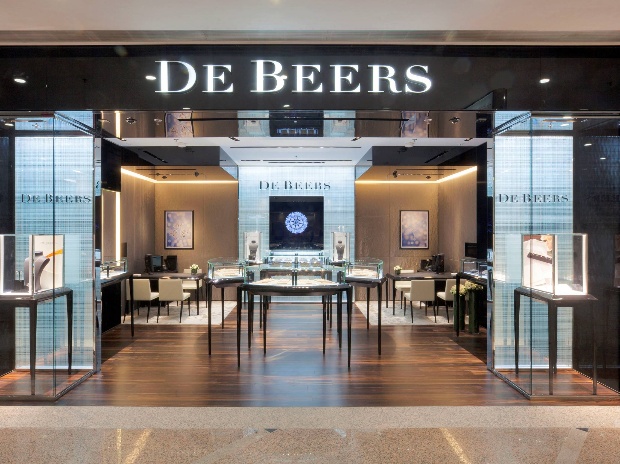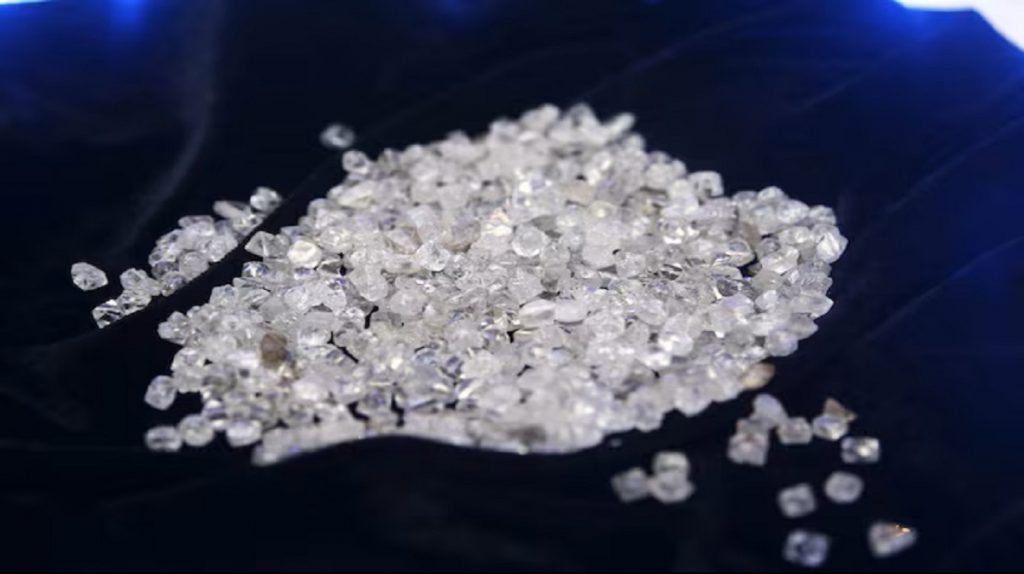Angola Challenges Botswana With Bid for Majority Stake in De Beers
In a dramatic twist that could reshape the global diamond market, Angola has reportedly entered the race to acquire a majority stake in De Beers, one of the world’s most iconic diamond producers.
According to sources familiar with the matter, Angola’s state-owned diamond company, Endiama, has submitted a formal bid to acquire a controlling interest in De Beers from its parent company, Anglo American Plc, which is currently restructuring its portfolio and looking to offload the storied diamond brand.
This latest development sets up a potential standoff between Angola and Botswana, two of Africa’s largest diamond-producing nations. Both countries view De Beers as not just a business opportunity, but a symbol of national identity and economic sovereignty.
De Beers: The Jewel in Anglo American’s Crown
Founded in 1888, De Beers has long been synonymous with the global diamond trade. For over a century, the company has shaped the narrative of diamonds — from mining and distribution to marketing campaigns that made “A Diamond Is Forever” one of the most successful advertising slogans in history.
Today, De Beers operates across several major mining hubs, including Botswana, Namibia, South Africa, Angola, and Canada. However, recent years have seen the company struggle to maintain its dominance amid falling diamond prices and changing consumer trends.
Parent company Anglo American, facing pressure from investors and declining profits, announced earlier this year that it was exploring the sale of De Beers. The decision came after diamond revenues dropped sharply due to weakened global demand and an influx of lab-grown diamonds that disrupted traditional markets.

Image Credit: The company name of De Beers
Angola Steps Into the Spotlight
Angola’s interest in acquiring De Beers reflects its growing ambitions to become a central player in the global diamond supply chain. The country has made major strides in reforming its mining sector over the past decade — moving from opaque state control to a more transparent, investment-friendly system.
Endiama, Angola’s national diamond company, is spearheading this transformation. Once criticized for inefficiency, the company has modernized operations, attracted foreign investment, and opened previously restricted diamond zones to international mining groups.
According to a source who spoke to Reuters, Endiama’s bid marks Angola’s most aggressive move yet to secure a leading role in the global diamond economy. If successful, it would grant Angola control over one of the most valuable and influential names in the luxury jewelry industry.
The bid also confirms a Bloomberg News report earlier suggesting that Angola was preparing a formal offer. Though neither Endiama nor Anglo American has publicly commented on the latest development, insiders suggest that discussions are already underway.
Botswana’s Strategic Stake and National Pride
Botswana currently holds a 15% ownership stake in De Beers, with Anglo American owning the remaining 85%. For Botswana, De Beers is not merely a corporate asset — it’s the foundation of its modern economy.
Diamonds account for nearly 70% of Botswana’s export earnings and have transformed the once-poor nation into one of Africa’s most stable and prosperous economies. The government has long viewed its partnership with De Beers as a cornerstone of national development.
In July, Botswana’s Minister of Mining, Lefoko Moagi, made headlines when he declared the country’s intent to seek full control of De Beers, calling the company a “strategic national asset.” His statement followed tense negotiations earlier in the year over the renewal of mining licenses and profit-sharing agreements between the Botswana government and De Beers.
Botswana’s bid for control was initially viewed as bold but plausible — given its long-standing relationship with Anglo American and its deep integration into De Beers’ supply chain. However, Angola’s sudden move introduces a new layer of complexity to what was once considered Botswana’s game to win.
The Global Context: Diamonds Under Pressure
The timing of these bids is no coincidence. The global diamond market has faced significant headwinds in recent years. Prices have fallen sharply as lab-grown diamonds gain popularity for their affordability and ethical appeal.
Major consumers like the United States and China — which together account for over half of global diamond sales — have seen declining demand, particularly among younger buyers who favor sustainability and alternative forms of luxury.
As a result, Anglo American’s diamond division has been underperforming, with revenues dropping quarter after quarter. In 2024 alone, the company’s diamond sales fell by nearly 30%, forcing Anglo to reevaluate its portfolio and cut costs across its mining operations.
By selling De Beers, Anglo American hopes to streamline its business and refocus on core areas like copper, iron ore, and fertilizers — commodities seen as vital for the energy transition.

Image Credit: De Beers
Angola’s Changing Strategy: From Minority to Majority
Interestingly, Angola’s recent bid marks a significant shift from its earlier stance. As recently as September 2025, the Angolan government indicated that it was only seeking a minority stake in De Beers, and that such an investment should ideally be led by a private-sector consortium.
However, with the diamond market in flux and Angola’s domestic production rising, the government appears to have revised its ambitions. According to analysts, Angola’s move to acquire a majority stake signals a newfound confidence in its financial and managerial capacity to lead global mining ventures.
“Angola has been aggressively positioning itself as a reformed, investment-ready economy,” says Helena Costa, a mining analyst based in Lisbon. “Acquiring De Beers would not only give it prestige but also control over one of the most powerful distribution networks in the world.”
A Potential Standoff Between Neighbours
If both Angola and Botswana push forward with competing bids, it could spark one of the most significant power struggles in Africa’s modern resource economy.
Botswana’s government views any foreign takeover of De Beers as a threat to its economic sovereignty. Conversely, Angola sees the acquisition as a chance to diversify away from oil and elevate its global profile.
Industry experts suggest that Anglo American could ultimately favor a consortium bid — one that balances both nations’ interests. But given the political and emotional stakes involved, a peaceful resolution may be difficult to achieve.
“There’s a sense of national pride on both sides,” says Mark Stevens, a Johannesburg-based commodities expert. “For Botswana, De Beers is part of their identity. For Angola, it’s about rewriting their story and stepping onto the world stage.”
De Beers’ Future Hangs in the Balance
While the sale process is ongoing, De Beers’ internal operations continue under pressure. The company has been cutting costs, delaying expansions, and restructuring its global marketing strategy to appeal to a new generation of consumers.
At the same time, De Beers has doubled down on its commitment to traceability and ethical sourcing — introducing blockchain technology to verify the origin of its diamonds. This push for transparency could play a critical role in the company’s long-term survival, regardless of who owns it next.
Still, uncertainty looms. With two African nations vying for control and Anglo American under investor pressure to finalize a sale, De Beers stands at a crossroads — one that could redefine the future of the diamond industry.
What This Means for the Global Diamond Market
The outcome of this bidding war could have ripple effects across the global luxury sector. If Angola secures control, it could reshape the geography of diamond power, shifting influence away from traditional strongholds like Botswana and South Africa.
If Botswana wins, it would solidify its reputation as a model of African resource management — a small country successfully commanding a multi-billion-dollar industry.
Either way, the move underscores how Africa, long seen as a source of raw materials, is increasingly asserting control over its own resources and industries.
Looking Ahead: A New Era of African Ownership
Whether the deal goes to Angola or Botswana, one thing is clear: Africa’s diamond-rich nations are no longer content to play supporting roles in the global gemstone trade. Instead, they’re demanding equity, control, and recognition for the wealth their lands produce.
For Anglo American, the sale of De Beers may represent the end of an era. For Angola and Botswana, it marks the beginning of a new chapter — one defined by competition, ambition, and a reimagined vision of African economic independence.
As global markets wait for official confirmation, analysts expect that any deal could take months to finalize, given the regulatory scrutiny and political sensitivity involved. But when the dust settles, the name De Beers — once a symbol of colonial-era mining — could become the emblem of a new, African-led era in the world of diamonds.








